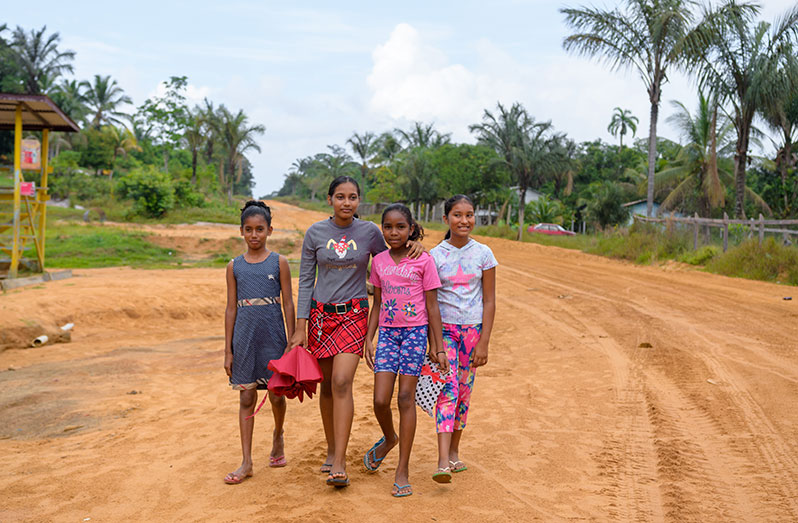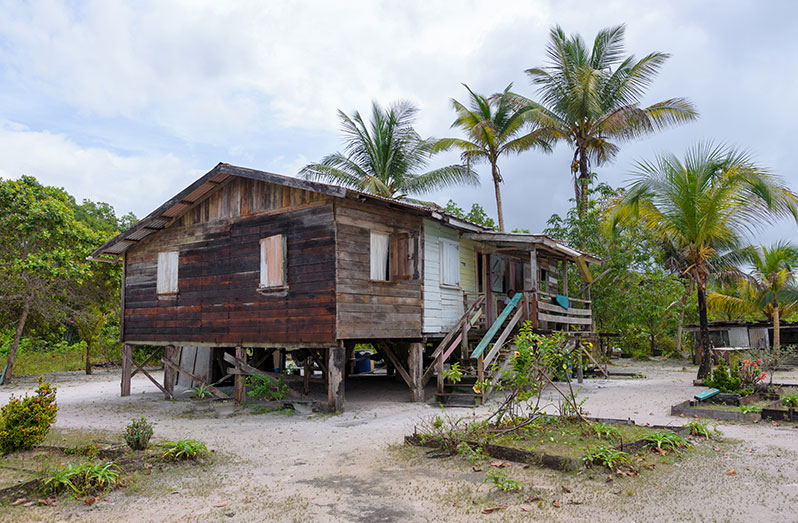IF the history of the Bartica Township is to be written, so to speak, Mayor Gifford Marshall feels that the Winiperu community must be included because of the significant contributions that the people have made to the town over the decades.
“Winiperu remains a community that is very close to our heart. Bartica, being the central or the main town in Region Seven (Cuyuni/Mazaruni), would see a number of persons from Winiperu supporting our services,” Marshall expressed during an interview with Pepperpot Magazine.

“For this, we are very grateful. We know that they have a few issues, and we will continue to work with the Regional Democratic Council in ensuring that they are addressed. The number of persons who were born and grew up in Winiperu, who contributed to the township of Bartica is significant,” he added.
Marshall called attention to the Winiperu Creek, which he said is part of the region’s tourism drive. “It’s part of what we have to offer in Region Seven. Those persons who would have [sic] visited that creek know the beauty and scenic nature of it, and of course, you can enjoy seeing the wildlife, especially the monkeys, jumping from tree to tree,” he said.
According to former Regional Chairman Gordon Bradford, Winiperu has been in existence for many years under different companies such as Caribbean Resources Limited (CRL), Guyana Timbers, Colonial Life Insurance, and Vaitarnia Resources, an Indian company currently working in the area.

“The last time I was in there, I gathered that operations have been winding down a little; not as it used to be before. The whole economic situation has seen the company wavering,” Bradford opined.
Explaining what the company does, he said: “They bring the logs to the landing, and while they would export them, they would also cut them to produce materials.”
While electricity, water, transportation, and phone signals are sore areas of concern for residents of Winiperu, Bradford noted that the regional authorities would do their best to assist when necessary, such as providing a vehicle to someone in an emergency.
“We have been making representation to GT&T to improve their signal,” Bradford related, among the measures they’ve taken to bring improvement.

The primary school in Winiperu is a collaborative effort between the company and the government and has, for the most part, been working well.
The health post is managed by the regional authorities that overlook staffing and repairs. “It used to be located in the company’s compound, but because persons are living outside the compound, we saw to constructing it alongside the road so that anyone can have access to it at any time,” Bradford related.
The school’s population often depends on the company because the more workers that the company employs, the more enrolments the school sees. Now that there are not many workers, there has been very low enrolment over the past year.
The primary source of employment at Winiperu is working with the logging company as a labourer, operator, mechanic, welder, or something else. Since most people depend on this source of income, if there is no work, they’ll leave the community. A few others run small businesses in clothing and groceries.
With no police outpost at Winiperu, the community would sometimes see a patrol from nearby Sharima village. Persons wishing to make a report would also have to go to that village.



.jpg)










